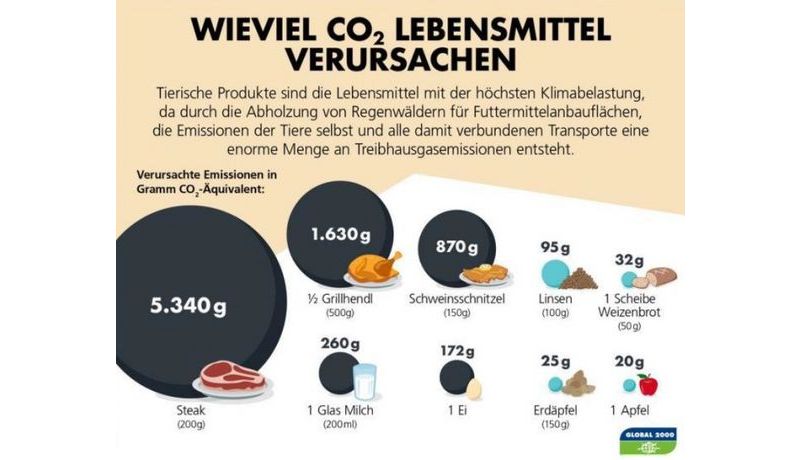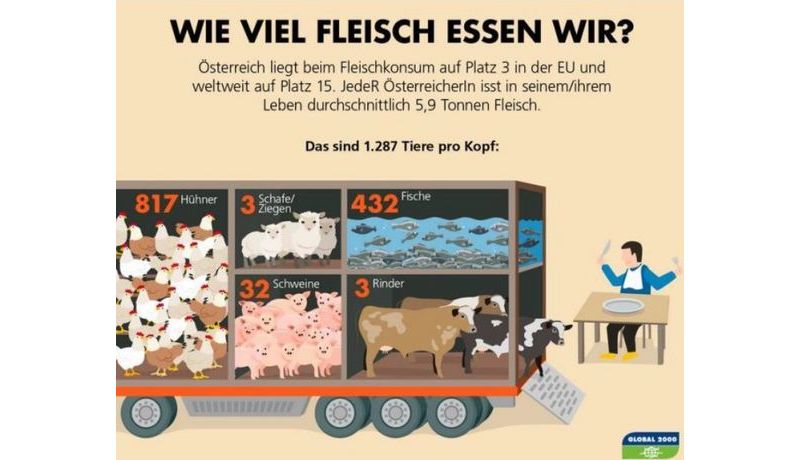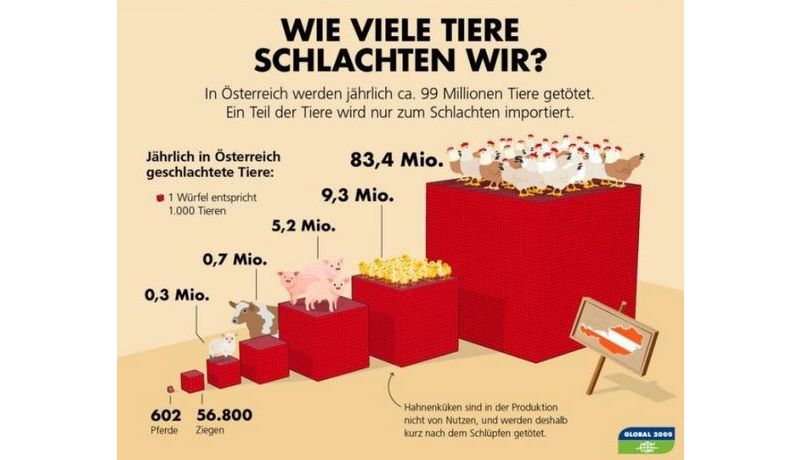All organic and local. But why actually?
By launching an unprecedented measure to switch to using all organic food products, the Johannes Kepler University Linz and the Austrian Mensa Ltd. are continuing to support a sustainable food concept that socially corresponds to our times. The move also supports a current movement toward addressing important contemporary issues such as animal welfare, environmental protection, regional land development, and eating healthy.
40% of insects currently face extinction, 75% of crop plants depend on insect pollination. In global terms, 50% to 90% of species are about to become extinct. The reasons are numerous and include the loss of agricultural diversification as well as the fact that there are too many large areas with far too few crop rotations. 35% of soil in European agriculture is coarsely compacted and shows signs of severely disturbed soil life, thus requiring compensation by using energy-intensive industrial fertilizers. There seems to be no end to this vicious cycle which will eventually result in impacting biodiversity and losing soil fertility.
It is no secret that each one of us can influence the world we live in, even by just starting with the meals we consume every day. To support the JKU's endeavors, food pioneer Werner Lampert and his team were invited to create a concept for the large Austrian cafeterias to use organic, sustainable, and high-quality food. In May 2019, the JKU cafeteria, the "Mensa", began using locally-sourced, organic meat and ingredients. And: The JKU Mensa complies with standards that surpass the EU Organic Farming Directive.

Purchasing sustainable food at the JKU Campus
Meat served is organic and other food products and ingredients are mostly locally-sourced.
The Incarnate Meat Crisis
Aside from health issues caused by excessive meat consumption, the enormous increase in the demand for burgers, etc. also has an enormous impact on the earth's soils and climate.
In comparison, whereas 84 million tons of meat were globally produced in 1965, by 2017 this figure had risen to 330 million tons - almost four times as much. During 2018, the JKU cafeteria processed around 35 tons of meat.
The earth's population will soon reach 10 billion. How do we stay within the planet's ecological limits but at the same time, try and meet the basic needs to provide for 10 billion people? This will be one of the greatest challenges over the coming decades and can only be mastered by thinking more outside of the box and taking action responsibly.
Have Any Questions?
What does organic mean? Why is reducing our meat consumption good for the environment? Where does JKU cafeteria's food come from? We are happy to answer your questions!
What does switching to organic food mean in terms of beef consumption?
- Mandatory pasture grazing
- Raised outdoors on pasture-grazing grass
- Soy-free, ruminant-friendly feed (roughage)
- 75% farm fodder, 100% domestic organic fodder
- Max. 15 % concentrated feed
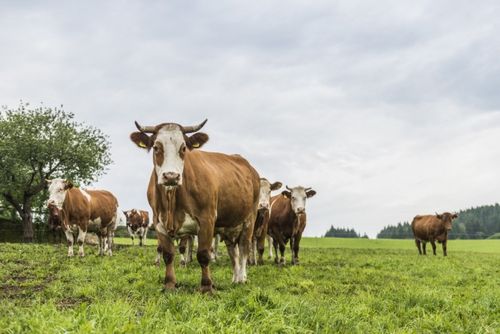 Cows in organic farming
Cows in organic farming
What does switching to organic food mean in terms of pork consumption?
- Access to outdoor areas
- Straw and root material
- No box stall & no chains
- Castration under anaesthesia
- No Danish genetics
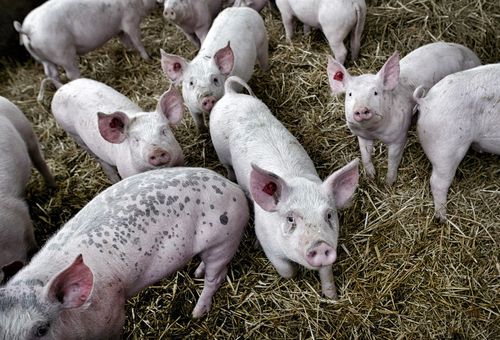 Pigs in organic farming
Pigs in organic farming
What does switching to organic food mean in terms of poultry consumption?
- Slow growing breed (56 instead of the conventional 28 days)
- Access to a structured outdoor area
- Outdoor scratching area
- Local organic feed
- 4 m2 space per chicken
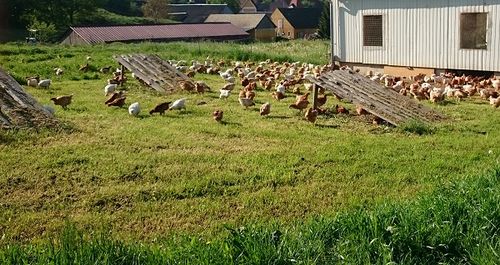 Chickens in organic farming
Chickens in organic farming
Did you know that...
Eat organic and local food at the JKU Campus
Meat served at following restaurants and bars comes from organic farms and all other ingredients and food products are mostly locally sourced.

